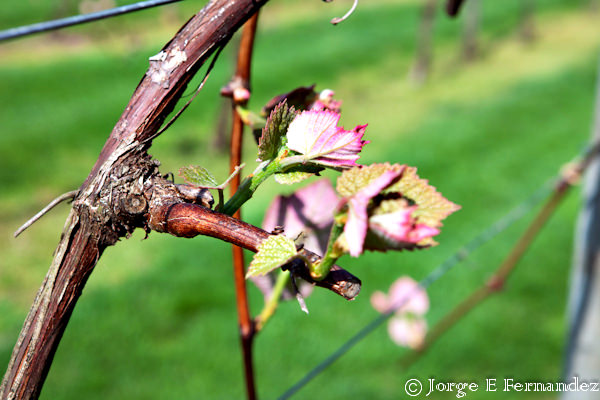
The daffodils have made their appearance and purple azaleas are popping everywhere. As I have watched in wonder and delight, my yard has come back to life after a winter we never thought we’d see the end of. But it got me thinking. What is happening in the fields and vineyards throughout Bucks County? How have they fared?
At Crossing Vineyards in Washington Crossing they are waiting and watching. “We haven’t been able to assess the impact yet,” explains Christine Carroll, who with her husband, Tom Sr. and winemaker-son, Tom Jr., own this ten-year old vineyard in Upper Makefield. I spoke with her to see how their vines were and to find out what happens at a winery this time of year.
“Many of European varieties can get damaged if it is too cold for too long,” she says. On the other hand, snow—of which we certainly had plenty of—can act as an insulator too. At Crossing, they cover the root-stock with soil in the fall to prepare for the winter. It’s a process called “hilling up.” In the spring, they “hill down,” brushing away the extra soil and then assess the health of the vines.
“We are hopeful we won’t sustain a lot of winter damage,” says Carroll, “but we have to replant some every year after seeing which vines didn’t make it.” Crossing, like many other wineries in the Mid-Atlantic, also grows Chambourcin and Vidal Blanc grapes, two varieties that handle winter temperatures better. “Our climate is more like Southern Germany and Northern France—which withstands some bitter, cold winds—than California,” she explained.
Certain blocks of the vineyard are showing more signs of life, Carroll says, but that’s not unusual because of the “microclimates” in the various blocks and the varietals planted there. The hybrid varietals which are more cold hardy seem to be showing the most encouraging signs. “We’re not able yet to accurately assess the effect of the winter on our European varietals (vinifera),” she explains. “They typically bud later in a ‘normal year’—whatever that is!”
Over the winter the wines throughout our region have been aging in tanks and barrels. At Crossing, they spent the winter bottling later 2012 vintages and some of the 2013 harvest. Grapes like dry, warm weather, with a late frost in the fall. In Bucks County, 2010 was just like that and provided a great harvest. But in 2011, Hurricane Irene hit in September and severely damaged the whites, says Carroll, which were just ready to harvest. In 2012, Hurricane Sandy came in the middle of the red grape harvest and smacked them pretty hard. But 2013 was a good growing season, she says, so look forward to some nice local wines.
Part of what I enjoy about our local wines is the diversity. Unlike some big commercial labels, that strive to make their Chardonnay or Merlot taste the same every year (because it sells better that way), our local wineries like Crossing, take what Mother Nature gives and work with the juice to create unique wines.
Much the same is going on at Wycombe Vineyards in Forest Grove. There Rich Fraser has been checking his vines, bottling the 2013 harvest and picking dandelions. You heard me right. Picking dandelions.
“I don’t do a lot of sweet wines,” he explains, “We grow mostly European varieties, semi-dry and dry.” But in late April dandelions fill the grass in-between the rows of vines. Fraser, his extended family and some much appreciated volunteers, pick the dandelions so that Fraser can make dandelion wine from his grandfather’s recipe. It’s a sweet dessert wine, sold in small bottles, and best sipped cold. We always have a bottle in the back of the fridge in our house. Look for it for sale in August at their winery store.
If you stop by Wycombe Vineyards on a pretty spring day, as I did last weekend, you’ll find happy people sipping wine and munching on cheese on their deck. It’s a lovely space surrounded by tall trees that let in the sun but also provide shade and a gentle breeze on a hot summer day. A few years back, I wrote a piece on just how nice it is to “get away” at Wycombe Vineyards (see A fifteen dollar staycation).
In the winery, you’ll find a lot of the 2013 harvest ready to be enjoyed. I picked up a bottle of one of our favorites, Traminette, a white semi-dry, that gets me thinking about summer and grilled seafood. The White Chamboucin, a newer grape for Wycombe, is also a semi-dry, with a light body and cherry tones. The 2013 red Chamboucin is also ready to pour as is the 2013 Cabernet Sauvignon, a full-bodied and dry wine, with hints of red raspberry. You can taste the 2012 Chardonnay and Naked Chardonnay (no oak) too, or some of their reserve reds (aged 4 years or more). All but two of the wines are estate bottled, meaning all of the juice came from Wycombe’s vineyards. Other vineyards may bring in juice from other parts of Pennsylvania to complement their harvest and create their own blend.
Fraser is also checking his vines. They appear to be okay, he says, but it’s most likely the fruiting buds suffered some cold injury, so in his pruning he is leaving twice the amount to compensate. “If there was little injury, I’ll have twice the field work thinning the resulting jungle of canopy,” he adds, “but that’s the farming side of an estate winery.”
 This weekend, the Bucks County Wine Trail is holding the first part of their 2014 Spring Tour, a self-guided tour of all the wineries in the county.
This weekend, the Bucks County Wine Trail is holding the first part of their 2014 Spring Tour, a self-guided tour of all the wineries in the county.
Sunday, May 4, is the “South Tour,” which includes Buckingham Valley Vineyards (Buckingham), Crossing Vineyards & Winery (Washington Crossing), Rose Bank Winery (Newtown), Rushland Ridge Vineyards (Rushland) and Wycombe Vineyards (Forest Grove). Each winery will also have delicious food to complement the wines. Food partners include None Such Farm, Raymer’s Chocolates and Andre’s Wine & Cheese Shop.
The “North Tour” will take place on Sunday, May 18 and includes the New Hope Winery (New Hope), Peace Valley Winery (Chalfont), Sand Castle Winery (Erwinna), and Unami Ridge Winery (Quakertown). Food partners will include Maize Restaurant, TASTE, and Tabora Farm.
Visit any of the wineries to purchase tickets:
$30 North Tour (No North tickets sold after May 15)
$35 South Tour (No South tickets sold after May 1)
$50 Complete Tour
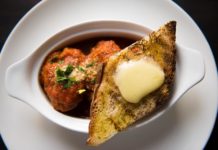
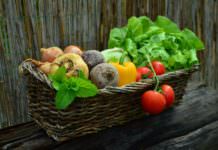

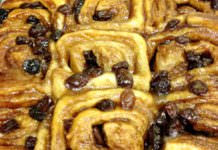
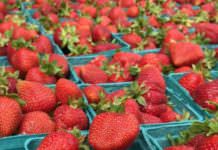
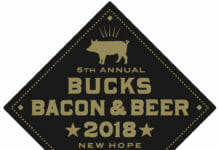
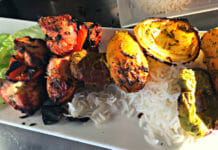
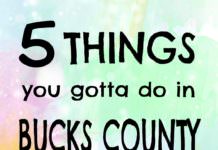
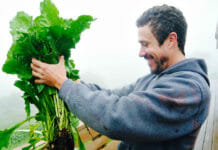
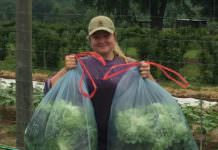
![What we’re reading [Oct 16 2017]](https://www.buckscountytaste.com/wp-content/uploads/2017/10/coffee_macbook_reading_pexels-photo-414630-218x150.jpeg)
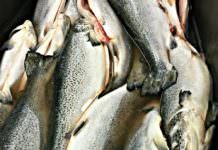
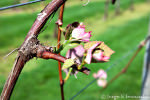
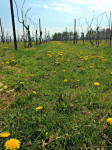
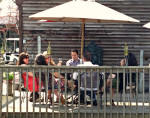
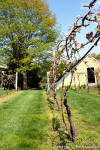
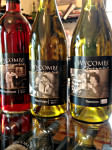
[…] Spring in the vineyards […]